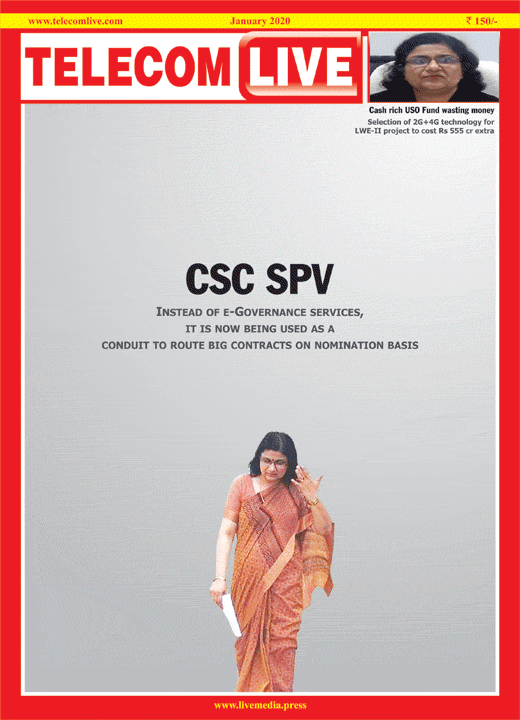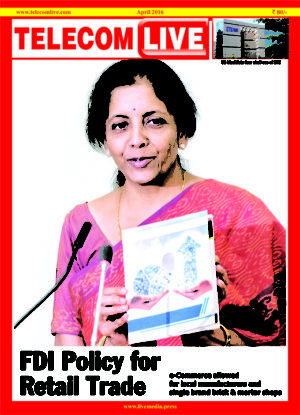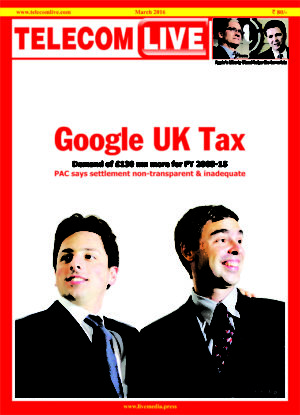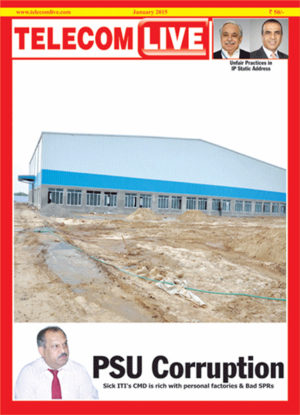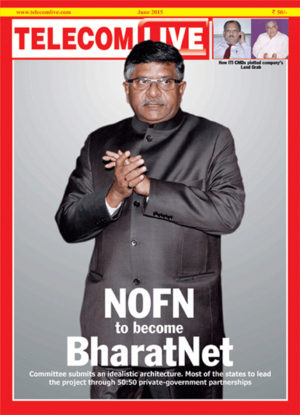USOF projects need to be scrutinized for quality and fund utilization. In this edition both our cover and lead stories look at two mega USOF projects.
CSC e-Governance Services India Ltd (CSC SPV) is a special propose vehicle for the purpose of rollout of e-Governance services. Big government contracts are routed through this on a nomination basis. CSC SPV passes on USOF projects to its wholly owned subsidiary CSC WiFi Choupal Services India Pvt Ltd (CSC Choupal) and then these are assigned to Common Service Centres (CSCs) through a maze of private entities.
Phase-1 of BharatNet was for 1.25 lakh GPs and 301,535 km OFC was laid. Non-utilisation of Phase-1 was reported with no traffic, so it was decided to take the network to the end user through FTTH or WiFi. CSC SPV now seeks to lay 9 lakh km of additional OFC cable (5 FTTH x 3 km x 90,000 GPs) for BharatNet phase-1, for connecting end-users. CSC SPV has many private stakeholders through which it rolls out projects that it gets on a nomination basis. CSC SPV contracts are analysed in our cover story. The Phase-2 of BharatNet involves 1.25 lakh GPs and is under PPP route.
The second USOF project pertains to setting up mobile towers in LWE affected areas. It continues to invest in outdated 2G technology. On October 17, 2019, it invited a tender for putting up 2G+4G equipment at 2,217 sites at an estimated project cost of Rs 3,214.65 crore, which means Rs 1.45 crore per site. On November 4, 2019, it floated another tender for providing mobile towers at 354 sites for uncovered villages. The estimated cost of this project is Rs 424.80 crore ie Rs 1.20 crore per site. On December 26, 2019, USOF floated another tender for providing mobile towers at 124 sites for providing coverage in 85 uncovered villages and along the 129 km long national highways at an estimated project cost of Rs 149.14 crore or Rs 1.20 crore per site. 4G equipment has been specified for this project.
On a cost comparison of the three projects, it is found that 2G+4G equipment is costlier by Rs 25 lakh per site compared to the estimated cost of 4G/technology neutral equipment. And for 2,217 sites, the difference is Rs 555 crore. This is a big sum of money that can be saved by making this tender also 4G/technology neutral.
Efficient usage of resources is very important since a large number of villages will still remain uncovered and savings garnered could be used for providing coverage to other uncovered villages.
